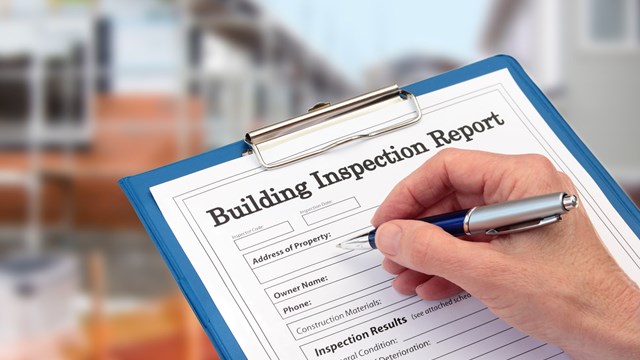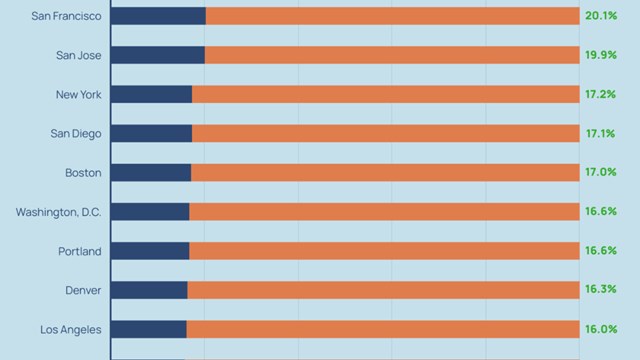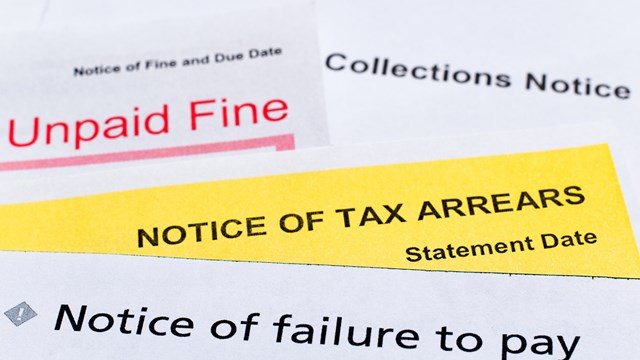
One of the biggest problems that can cause the downfall of any co-op or condo is a lack of funds, or more specifically, not enough money to keep operations running smoothly and to make the necessary repairs to keep everything up to par.
These financial firestorms may happen when a co-op or condo development has a long-running squabble with the building sponsor/developer, is faced with a disproportionate number of sublets and rental tenants, falls victim to a major unexpected, ill-prepared-for repair project, or are the unhappy victims of fraud.
If there’s no money in the reserve fund, a lack of equity to borrow from to make repairs or not enough people able to pay high special assessments, the building will be in serious trouble—falling into bankruptcy or worse.
The Root Causes
When it comes to money, whether it’s a household budget or a multi-million dollar co-op or condo budget, honesty is always the best policy. This is especially true in being honest with oneself and maintaining a realistic perspective on the bottom line.
This can be a difficulty when boards or board presidents do not want to be the ones to ask their friends, neighbors and fellow unit owners for extra money in maintenance fees each year. One of the most frequent causes of financial trouble is “the desire to create a ‘no increase’ position so years will go by without maintenance increases,” says David Ramsey, a shareholder attorney with the law firm of Becker & Poliakoff in Morristown. “The fact is that the costs of living go up.” If the association is not raising fees, then “they are cutting corners somewhere. Residents may like it but it’s generally not a good thing for finances.”
“What happens is that nearly every board wants to minimize or eliminate increases in the annual budget,” says Attorney Wendell Smith, a partner with the law firm of Greenbaum Rowe Smith & Davis, LLP in Woodbridge. “What they end up doing is borrowing from reserves or they don’t make the repairs they should. They wake up and they’re behind the eight-ball. They don’t have money for repairs and they have to do a special assessment. Or the reserves aren’t fully funded and they have to borrow. It’s not a universal problem but it’s very common.”
Jules Frankel, CPA, MBA, a shareholder with the certified public accounting and consulting firm of Wilkin & Guttenplan in East Brunswick agrees. “Not budgeting realistically is a problem,” he says. Boards budget too low for their assessments or do not have a contingency line item. “Boards want to be heroes and keep assessments and fees low. It’s easier to have small increases each year versus a crisis and a 15 to 20 percent assessment.”
Other issues arise in the creation or maintenance of the reserve fund, says Frankel. “The engineers may recommend a certain amount of money be put aside for the replacement fund, and (the board) feels they can’t afford to put the money in so they kick the can down the road. Now there’s a crisis because they have to do a special assessment or borrow money.”
Related issues include not updating reserve plans on time—usually every three to five years in New Jersey. “If they let it lapse and don’t update it right away, prices will have changed so they are not putting the right amount of money away,” says Frankel. Also, “when the engineer does the study, they give three different funding options,” Frankel says. “The building may choose the cheapest option without understanding the repercussions. It can be a baseline funding disaster waiting to happen.”
Another significant problem, the experts agree, is not pursuing late fees. “They don’t enforce the collection policy and delinquencies rise,” says Smith. “It spreads throughout the association that they aren’t enforcing so it becomes a matter of ‘why should I pay?’ It’s fairly common, especially in these tough economic times.”
“The association allowing delinquencies to go on for too long is a problem,” says Ramsey. What happens is that the fees can add up quickly for residents, who quickly find themselves in a corner. It’s not good to “let it go so long that the individual can’t pay or goes into bankruptcy.” If this happens with a handful of residents or begins to impact a significant percentage of owners, it can have a very negative effect on the association’s balance sheet.
One other common issue is “not charging members for the services they get,” says Ramsey. “If you budget ‘X’ amount for snow and it comes to twice as much, you need to do a snow assessment right away. If you wait and do it in the summer, people forget about the snow and it becomes a problem.”
Rarely does financial distress come out of the blue. Sometimes, though, disasters can strike, such as Hurricane Sandy or even a catastrophic failure of a big-ticket item in a building. “It can be sudden like the windows failing prematurely,” says Ramsey. “More often than not, though, there are warning signs along the way.” And it is everyone’s job—from management to the board—to keep their eyes open for them.
Fix the Problem Early
In situations of financial distress, it is always better to tackle the problem sooner rather than later. In the worst case scenarios, condos can “find themselves so far in the hole that no bank will lend you money,” says Ramsey. “And then the more fees increase, the more delinquencies will occur.” The end point for this spiral is a court-appointed receiver taking over from the board and community as a whole.
And a condo or co-op community may not even find relief in bankruptcy. “You’ll get rid of existing debts,” says Ramsey, “but that doesn’t solve the problem of not having enough money to make repairs.” In the end, all of these financial woes will result in the value of the units going down, again creating a downward trajectory that can be extremely difficult to escape.
That is why stemming the tide early is key to getting better quickly. “First they have to recognize they have a problem,” says Frankel. “Then they need to work with management to come up with a plan. They may not remedy it immediately, but they can start putting money away or paying down debt. They need to figure out over what period of time they can fix this.”
Solutions may include a special assessment or borrowing money or a combination, Frankel says.
Smith agrees. “A special assessment may be a political death knell (for the board),” he says, but it is a necessary medicine.
A loan from an institutional lender also can make up the shortfall, Smith says. The board can pledge monthly maintenance fees as collateral. The loan is usually a line of credit that the board can amortize over time. This allows them to maintain the community and address problems without having to come up with a large chunk of money all at once.
Ramsey recommends building into the budget a deficit recovery line item. “How can we do repairs that need to be done today while still having a deficit reducing plan?” he says. “Boards need to sit with their management and financial people and look at all of their options.”
Having a plan and rebuilding cash on hand also will help should a loan become necessary. “It helps you look better to the bank, too, if you have a decent balance sheet and financials,” says Ramsey.
Another way out of the wilderness is to increase pursuit of delinquencies. “Write off the ones you’ll never collect, pursue what you can and get those taken care of,” says Ramsey. This too will inspire greater confidence in the community’s financial health from lenders.
It is important to look ahead to the future as well, in order to avoid more problems down the road. For example, when an engineer does a reserve study, the engineers will project out 30 years. When a community is first built, though, the exterior siding is usually slated to last 40 years. That means that for the first ten years of the community’s existence, the siding is not in the engineer’s window. “Then the years pass and there’s a huge bump in what the engineers suggest be put aside,” says Frankel. “Ask the engineer if there are any items beyond the window that they can look at now and include so the cost can be spread out over time.”
Communication and Honesty
Getting out of that hole will be a team effort—both on the part of the board and management and on the part of the community as a whole.
“I recommend as much transparency as possible,” says Frankel. “Have an open meeting and use an outside person to give the bad news—the accountant, engineer, managing agent or attorney, depending on the situation.” Having the news come from an outsider underscores the veracity of the information given and also helps reduce the emotional undercurrent that may bubble up when residents learn of problems and how this will affect their own budgets.
Not being upfront and honest will just lead to more trouble later. “If they think you’re trying to cover things up, it exacerbates the problem,” says Smith. “You need to be skillful in how you present the issue. Not everyone is going to appreciate what you’re doing (to fix the problem).” There may, for example, be residents who were used to renting and calling the landlord whenever an issue arose. “They may not remember that they are their own landlords now,” Smith says.
Ultimately, to get out of trouble, boards have to be tough on themselves and with their budgets, Ramsey says. “Treat yourself like you’re in bankruptcy. You need enough to keep a roof over your head and food on the table, but you can go without the decorative flowers in the spring,” he says. It may take years to get out of trouble “but if you have discipline and a good board and you stick to it, you can get out,” Ramsey says. “It will take time but you can do it.”
Elizabeth Lent is a freelance writer and a frequent contributor to The New Jersey Cooperator.






Leave a Comment